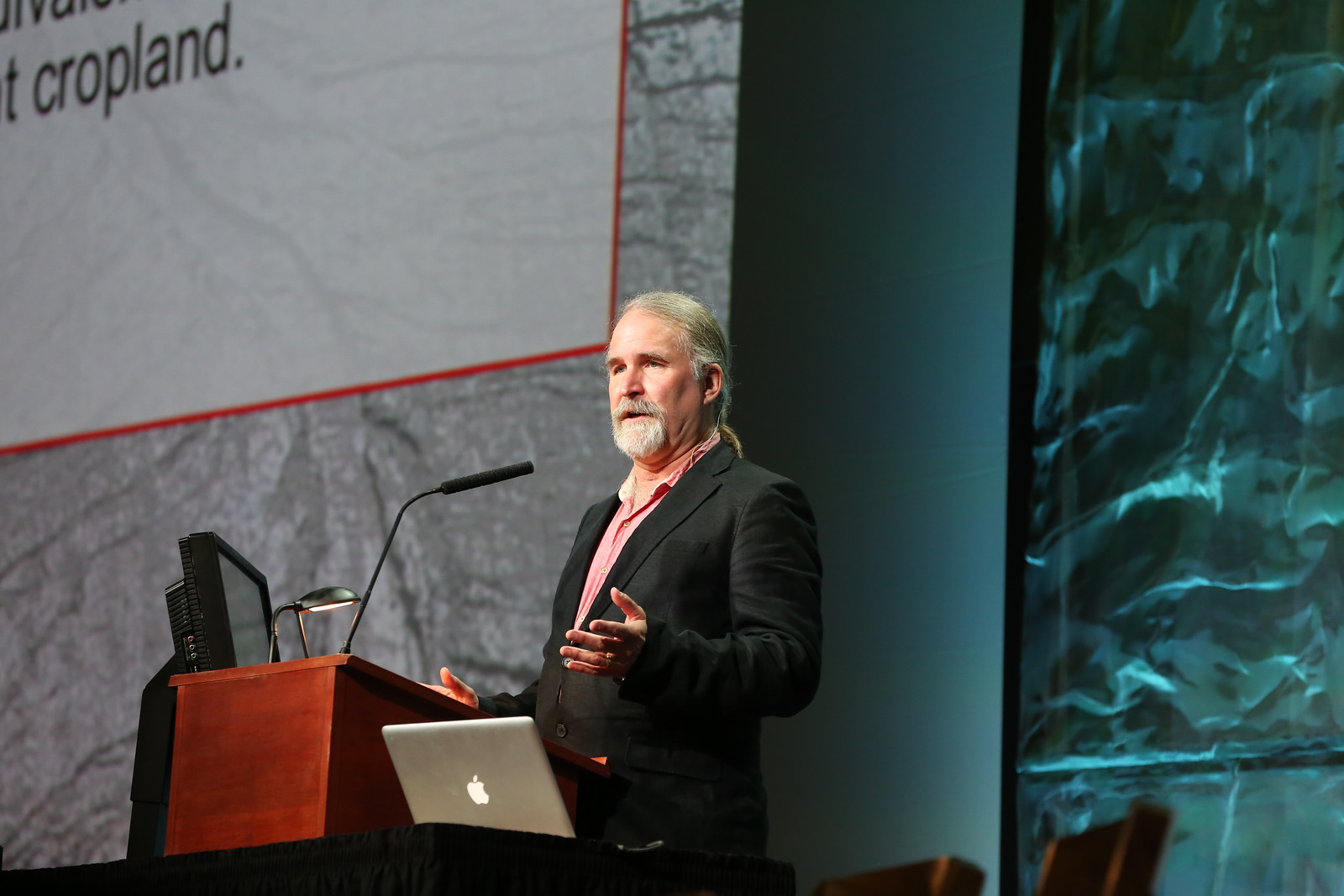Dr. David Montgomery is a busy guy.
The 2008 recipient of a MacArthur fellowship, his interests lie at the intersection of the solid earth—the rocky crust beneath our feet—and the ever-changing processes that sculpt its surfaces. He asks questions about the earth’s surface from the perspective of one who has studied long stretches of geologic time. Montgomery is interested in the ways by which processes at the earth’s surface (geomorphology) influence the life that depends on that surface and served as the opening speaker at The Nobel Conference 54, “Living Soil: A Universe Underfoot.”
Between writing books on scientific topics for the general public and teaching earth and space sciences at the University of Washington, he found time to visit Gustavus again this spring as the 2019 Rydell Professor and teach a five-week class on scientific writing. A frequent contributor to public conversations about science, he has been featured in documentary films, news shows, and a wide variety of television and radio programs, from NOVA to Fox and Friends.

All of that background informed the small, discussion-based course he taught at Gustavus. Students read two of Montgomery’s books, The Hidden Half of Nature and Growing a Revolution, and talked about what it means to write about science for the general public.
“[I’m] not trying to teach people the mechanics of writing, but the philosophy of writing,” Montgomery said. “How you would frame stuff, how you would tell stories, [and] how you would put an engaging argument together.”
Montgomery believes this work is deeply important, not just for students to succeed as writers but for the world to better understand science.
“I think we as a society could really use more scientists who are writing for the general public. And we could use more of an interaction between the arts and the sciences. We tend to think of them as separate, but I like to think of them as related,” Montgomery said.
Montgomery has not only taught his students, but they have reminded him of the joys of teaching at a small school.
“It’s reinforced that I like the discussion format with relatively small groups of students,” Montgomery said. “I teach at a large public university, and we don’t have the luxury of being able to do a whole lot of discussion classes. But it’s a great way to engage in ideas and with people. You get to see a whole different side of interaction.”

When he wasn’t teaching or enjoying tea in the Courtyard Café, Montgomery used his time at Gustavus to work on his next book. He said that he was able to finish about a quarter of the book while he was on campus.
“One of the things I’ve found as a writer is that it can often be difficult to get things done in your normal office or environment,” Montgomery said. “Sometimes you have to get away from your day to day routine to make big leaps of progress.”
Montgomery said his favorite part about being at Gustavus was the small size of the college and the relationships that come with it.
“You start to recognize people around campus after being here for only a few weeks. The scale really matters to human interaction,” Montgomery said.
The Rydell Professorship is a scholar-in-residence program at Gustavus Adolphus College that allows students to learn from Nobel laureates and other distinguished scholars. This program was established in 1993 by Drs. Robert E. and Susan T. Rydell to give students the opportunity to learn from and interact with leading scholars. For more information, visit https://gustavus.edu/events/rydell/.

Leave a Reply
You must be logged in to post a comment.